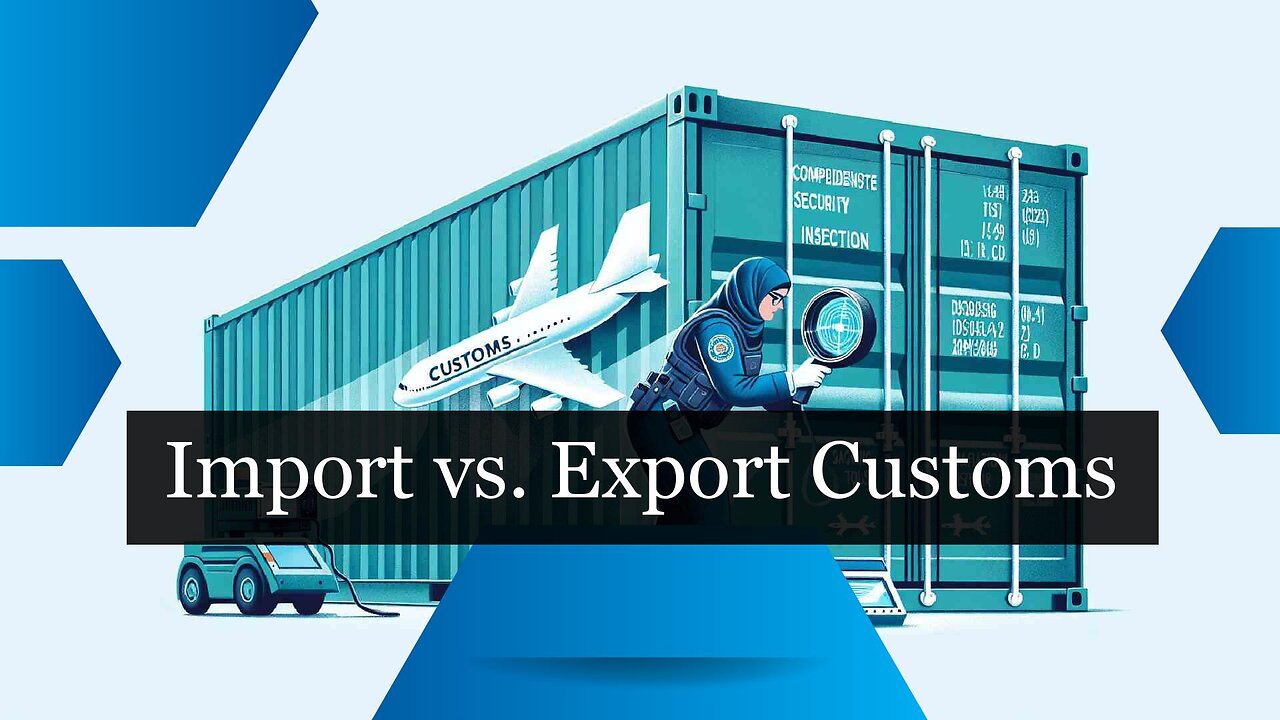Premium Only Content

The Ins and Outs of Customs Clearance: Import vs Export Shipments
ISF Template | 562-453-7357 | [email protected] | www.isftemplate.com
Customs clearance is a critical process in international trade that ensures the smooth passage of goods across borders while complying with all necessary regulations. In this video, we explored the differences in customs clearance between import and export shipments.
For import shipments, the first step is submitting an Importer Security Filing (ISF) that provides essential information about the imported goods to assess the risk associated with the shipment. Customs brokers then work closely with importers to ensure all required documentation is in place, such as commercial invoices, packing lists, and certificates of origin.
Once the documentation is complete, the goods are transported to the port of entry where customs officials examine the cargo to verify its contents, check for prohibited items, and ensure compliance with import regulations. If everything is in order, customs authorities release the shipment, although additional customs duties, taxes, or fees may be levied in some cases.
For export shipments, exporters gather and prepare the necessary documentation, including commercial invoices, packing lists, and export licenses if required. Customs authorities verify the details provided in the export documentation and conduct security checks to prevent the export of prohibited or restricted goods.
After the customs authorities clear the shipment for export, the goods can be loaded onto the transporting vessel or aircraft. Exporters must ensure compliance with any trade restrictions or embargoes enforced by both the exporting and importing countries.
Understanding the customs clearance process for both import and export shipments is vital for importers and exporters. Customs brokers play a crucial role as experts in navigating the complex customs regulations and acting as intermediaries between importers/exporters and customs authorities.
In conclusion, customs clearance is a significant step in international trade that ensures compliance, security, and traceability. By understanding the differences in customs clearance for import and export shipments, importers and exporters can navigate the intricacies of customs regulations effectively. Don't forget to like, share, and subscribe to our channel for more informative content on customs brokerage and international trade topics.
#usimportbond #isfcustomsbroker #uscustomsclearing #isfentry
Video Disclaimer Here: This video is designed for education and is unaffiliated with US government bodies.
-
 LIVE
LIVE
StoneMountain64
3 hours agoBlack Ops 7 Dead Ops ARCADE Gameplay #Cod_Partner
23 watching -
 34:49
34:49
Stephen Gardner
2 hours ago🔥Trump DROPS Secret Plan – Democrats Left SPEECHLESS!
2.34K23 -
 LIVE
LIVE
The Rabble Wrangler
13 hours agoNew Eastwood Map | The Best in the West Dominates the Battlefield
37 watching -
 1:10:42
1:10:42
vivafrei
2 hours agoThomas Crooks Exposé is a BOMBSHELL! Epstein Drama Continues! Alexis Wilkins Streisand Effect & More
95.5K47 -
 1:41:04
1:41:04
The Quartering
3 hours agoEpstein Files Takes Its First Scalp, MTG Unleashes, Kash Patel Blasted, Internet Outage & More
104K74 -
 24:53
24:53
Jasmin Laine
1 hour ago“NO ONE BELIEVES YOU”—Carney Gets HUMILIATED in BRUTAL Showdown
548 -
 LIVE
LIVE
LFA TV
20 hours agoLIVE & BREAKING NEWS! | TUESDAY 11/18/25
1,370 watching -
 LIVE
LIVE
freecastle
6 hours agoTAKE UP YOUR CROSS- The fear of the LORD begins knowledge; Fools despise WISDOM and INSTRUCTION.
81 watching -
 5:16
5:16
Buddy Brown
4 hours ago $1.19 earnedWatch INSANE Video of Woman Denied a TINY HOME on 37 Acres! | Buddy Brown
4.14K6 -
 59:19
59:19
Professor Nez
3 hours ago🔥 Trump TORCHES ABC Reporter for Disrespecting Saudi Crown Prince Mohammed bin Salman! (WOW!)
19.1K19